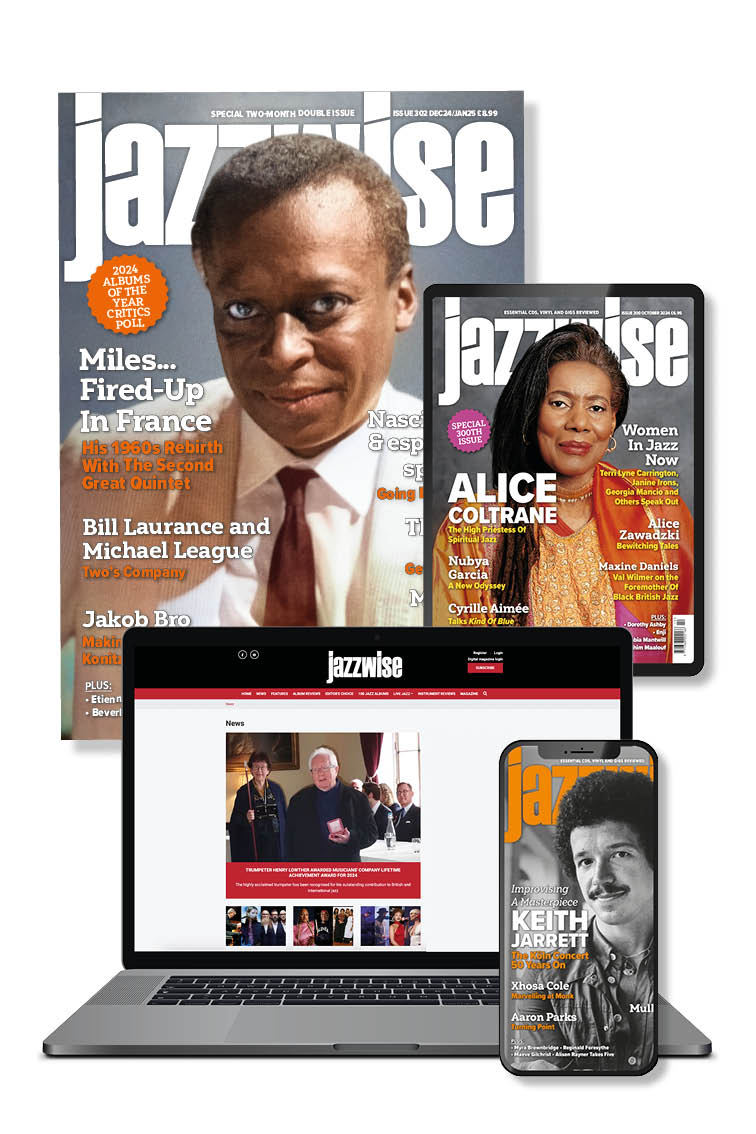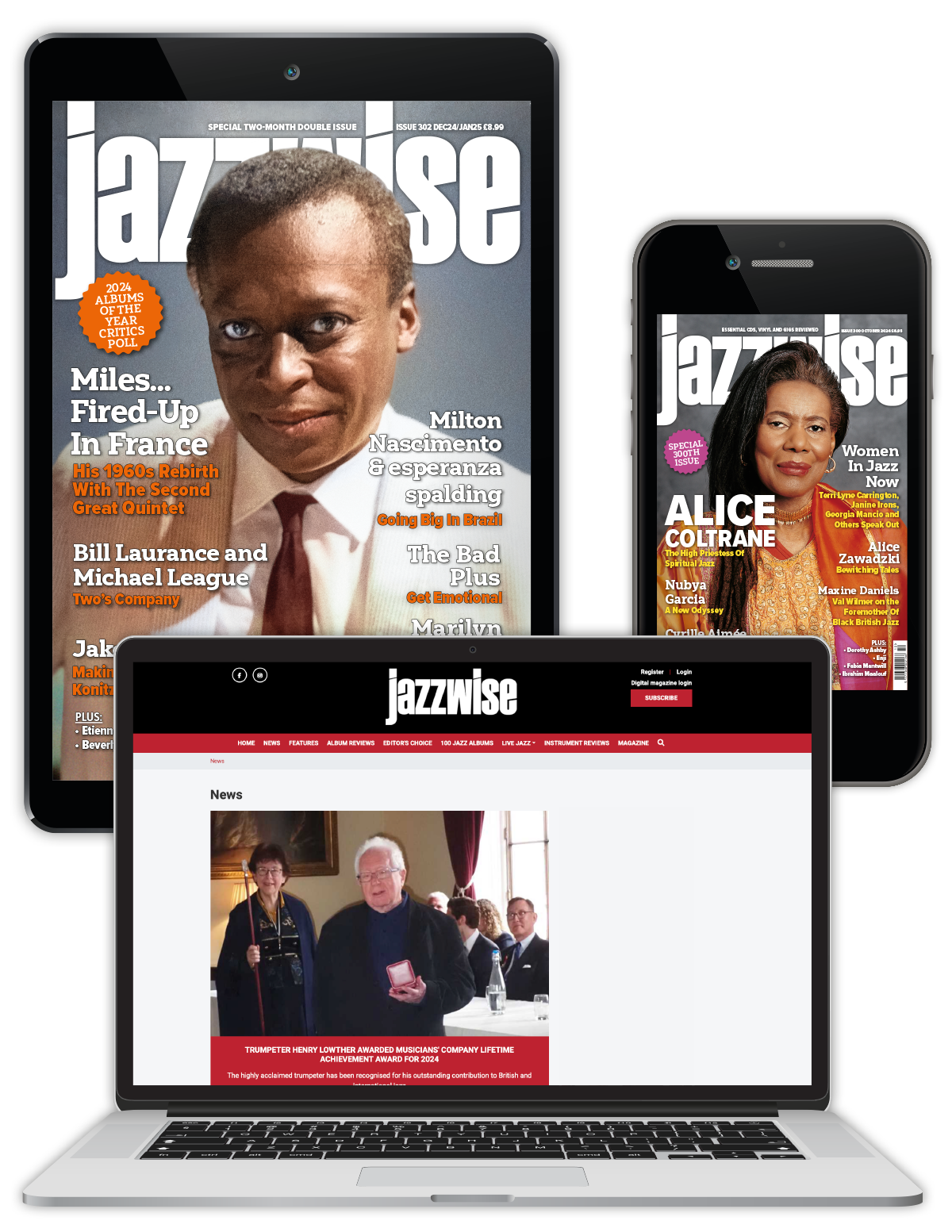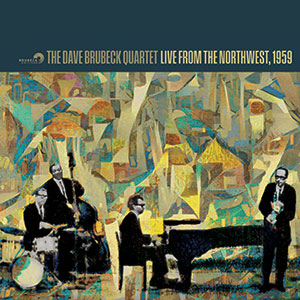The Dave Brubeck Quartet: Live From The Northwest, 1959
Author: Stuart Nicholson
View record and artist detailsRecord and Artist Details
Musicians: |
Paul Desmond |
Label: |
Brubeck Editions |
Magazine Review Date: |
February/2024 |
Media Format: |
CD, DL |
Catalogue Number: |
BECD2310001 |
RecordDate: |
Rec. 4 and 5 April 1959 |
This is a significant snapshot of the Dave Brubeck Quartet, in excellent fidelity, that numbers among Brubeck’s finest live albums – not as breathlessly absorbing as Jazz at Oberlin (1953) where Desmond was on fire, or as mesmerising and as the two volumes of Jazz at the College of the Pacific (1953), or the forceful, confident declamation of The Dave Brubeck Quartet at Carnegie Hall (1963), but an important live date that can mentioned in the same breath.
Relaxed and at one with themselves and their repertoire, it’s an album where the spotlight reveals important detail thanks to sound engineer Wally Heider, the doyen of location recordings – Desmond’s eloquent ability to build his line from a seemingly inexhaustible fund of fresh ideas; Eugene Wright’s imaginative, if seldom commented, bassline; the precise, articulate yet compelling rhythmic momentum generated by Joe Morello and Brubeck’s mission to create something different and creative every time he played. Context too lends significance to this album.
When Brubeck pitched Time Out to Columbia Records, Goddard Lieberson, the company President, was far from keen on the idea – an album of originals in exotic time signatures? However, Brubeck’s charm won the day and a compromise was struck. To cover the costs of what Lieberson was convinced would be an enormous financial flop, he had Brubeck agree to two albums of sure-fire standards. The first, Gone With the Wind, was recorded 20 days after this live date that included three numbers – ‘The Lonesome Road,’ ’Basin Street Blues,’ and ‘Gone With the Wind’ – that made it onto the studio album. They also perform ‘When the Saints Go Marching In’ – was this also being considered for inclusion as well?
Of the other tracks, ‘These Foolish Things’ is a suave, seemingly effortless rendition of a staple of their then repertoire, ‘Two Part Contention’ pointed to the future, while ‘Multnomah Blues’ saw Brubeck making use of the rising line to create a dense harmonic pyramid of shifting orchestral densities.
The postscript to Live in the Northwest, 1959 was that Time Out became a blockbuster on release, giving Brubeck licence to record more albums of his originals, opening a new chapter in his career, and making this release a pivotal historical document.

Jazzwise Full Club
- Latest print and digital issues
- Digital archive since 1997
- Download tracks from bonus compilation albums throughout the year
- Reviews Database access
From £9.08 / month
Subscribe
Jazzwise Digital Club
- Latest digital issues
- Digital archive since 1997
- Download tracks from bonus compilation albums during the year
- Reviews Database access

